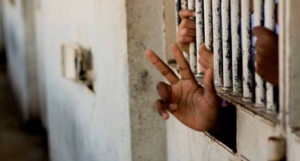In a significant move to address overcrowding in the correctional facilities of Akwa Ibom State, the Chief Judge, Justice Ekaete Obot, has ordered the release of 44 inmates, including two women. This initiative spanned across the correctional facilities located in the state’s three senatorial districts, marking a milestone in the judiciary’s effort to decongest prisons and uphold justice.
During the Chief Judge’s inspection visit, which was her first to these correctional centres, she assessed the situation and made the decision to grant freedom to several inmates. The breakdown of those released is as follows: six inmates were freed from the Ikot Abasi custodial centre, five from the Eket custodial centre, 11 from the Ikot Ekpene centre, and the largest number, 24 inmates including two females, were released from the Uyo custodial centre.
Justice Obot’s inspection was thorough, with particular attention given to the case files of the inmates. This process took place at the correctional chapel within the Uyo centre. Upon reviewing the files, Justice Obot noted that many of these individuals were detained for minor offences and had been languishing in custody for extended periods without trial. The nature of their offences varied, ranging from theft of small items like palm fruits and cassava to minor assaults and fighting. The Chief Judge also made considerations based on compassionate and health grounds, leading to the release of some inmates.
 One notable case involved Otuekong Essien, who had been held at the Ikot Abasi centre for stealing cassava tubers. Essien had been in custody for up to four months and was suffering from severe health issues, including a perforated ulcer and appendicitis. The custodial doctor confirmed his medical condition, prompting Justice Obot to release him on health grounds.
One notable case involved Otuekong Essien, who had been held at the Ikot Abasi centre for stealing cassava tubers. Essien had been in custody for up to four months and was suffering from severe health issues, including a perforated ulcer and appendicitis. The custodial doctor confirmed his medical condition, prompting Justice Obot to release him on health grounds.
Another significant case was that of 28-year-old Shadrach Hanson, who had spent over a year in custody for the relatively minor offence of stealing his mother’s cooking pot. Expressing her view on the matter, Justice Obot remarked, “I do not consider it serious enough for you to spend one year and four months in custody. You are hereby released unconditionally. Make sure you are on good behaviour and don’t do anything that will make you come back here.”
However, not all cases had clear resolutions. For individuals like Kufre Sylvester and others accused of cultism and conspiracy, the situation was complicated by the unavailability of their case files. In response, Justice Obot ruled, “Your case files cannot be found, and keeping you here will amount to a breach of your fundamental rights. It’s on this premise that you are released unconditionally.”
Despite her drive to decongest the prisons, Justice Obot was firm on her stance regarding violent and serious crimes. She emphasized that those who had committed major offences would not be released under her watch. This balanced approach highlights her commitment to justice, ensuring that the law is upheld while also addressing humanitarian concerns within the prison system.
During her visit, Justice Obot engaged with the state Controller of Corrections, Julius Ezegwu, urging him to prioritize the reformation and rehabilitation of inmates. She pointed out that beyond vocational training, there was a need for educational opportunities within the correctional facilities. She advocated for the establishment of schools, particularly for younger inmates and those willing to pursue education, as a means of equipping them for a better future.
“I have observed from my visits that there are training facilities for inmates, but it shouldn’t end there,” Justice Obot remarked. “There should also be the establishment of schools so that those within the teenage age and those willing would be enrolled. This will enable them to have a better future. We should not condemn them totally because of the situation they found themselves in. I advocate that apart from the craft, they should be exposed to secular education.”
Justice Obot assured that she would bring these observations to the attention of Governor Umo Eno, emphasizing the importance of integrating education into the rehabilitation process. Her vision reflects a progressive approach to correctional facility management, where inmates are provided with opportunities for personal growth and societal reintegration.
In response to Justice Obot’s visit and directives, Julius Ezegwu, the state Controller of Corrections, expressed his gratitude. He acknowledged the pressing need for infrastructural improvements, calling for repairs to the dilapidated facilities and vehicles that are critical to the operation of the correctional centres.




